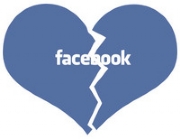 Over the last year or so I’ve been realising how everything in life is related to our relationships, whether we realise it or not. All of our interactions are either constructive or destructive for our relating. That’s why life is so difficult. I thought of saying during a sermon once that life is easy until you have to relate to someone!
Over the last year or so I’ve been realising how everything in life is related to our relationships, whether we realise it or not. All of our interactions are either constructive or destructive for our relating. That’s why life is so difficult. I thought of saying during a sermon once that life is easy until you have to relate to someone!
It is for this reason that doing our best to get our relationships to work is the most important thing we can do with our lives. Now, getting our relationships to work doesn’t necessarily mean they will be easier, but it does mean we will be more at peace. There is not much we can control in our relationships, but we can control the way we come across, with the help of God’s Spirit within us and with the help of others who love us enough to speak lovingly into our lives.
What we can’t control is how others relate to us. We can try to manipulate our relationships to get people to be nice to us or like us, but when we do this we will always know, deep down, a sense of distance from those people. That distance will be because we are actually trying to use them to make ourselves feel better. Whenever we are doing this we are not loving, and whenever we are not loving, we are not living as God intended and therefore not joyful.






